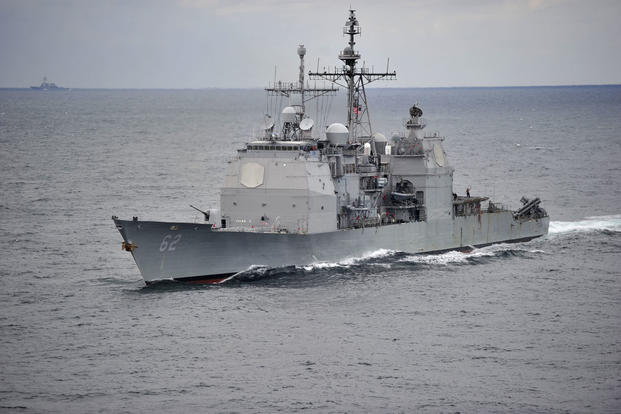Retired Lt. Cmdr. S. O. Rasbury is a former naval aviator who now flies for a major airline.
As the Navy considers renaming a couple of its ships of the line, it's become obvious to even the most casual of observers that the military has gone whole-hog on cancel culture.
I can understand renaming the Nimitz-class carrier Stennis, given its namesake John C. Stennis' segregationist background. But I am concerned that once we start down this path, there is a risk of creating something that takes on a life of its own.
I'm a Navy veteran who also happens to be African American. I get it that a lot of folks want to distance themselves from honoring those who brought discredit upon this nation, but we're supposed to take the good with the bad and learn from our mistakes. That's how we progress as a nation. If we start renaming ships due to objectionable historical associations, we risk heading down a slippery slope, from which there may be little chance of recovering.
Allow me to explain.
All Ticonderoga-class guided missile cruisers were named after military battles, and the potential renaming of the USS Chancellorsville is of major concern. The Civil War battle it memorializes was an important part of our history. The Confederacy won the battle, but most Americans don't realize that Confederate Gen. Thomas "Stonewall" Jackson died from injuries sustained there.
There are many other ships named for leaders and historical figures who acted in ways worthy of condemnation, not honor.
Many moons ago, I spent a couple of days, as part of a midshipman training program, onboard the ballistic missile submarine John C. Calhoun. It was named after a former vice president and South Carolina senator, who was also an ardent defender of slavery.
Adm. William F. "Bull" Halsey sailed Task Force 38 into the teeth of Typhoon Cobra in 1944. A court of inquiry determined that he had committed an "error in judgment," but he faced no sanctions. Mind you, three destroyers capsized and sank, with a loss of 790 lives, and nine other ships were damaged, with more than 100 aircraft damaged or lost overboard during the storm. Naval Air Station North Island is known as Halsey Field, and an Arleigh Burke-class guided missile destroyer also bears his name.
Then-Ensign Chester W. Nimitz was court-martialed and convicted of running the USS Decatur aground in 1907. He's now the namesake of a class of aircraft carriers.
If we continue on the path of erasing and removing names honoring those whose lives or histories carry a black mark, few will be left standing.
The Navy named several ships, including a Nimitz-class carrier, after George Washington, the first president and a known slaveholder. Another Nimitz-class carrier is named after former President Teddy Roosevelt, whose image is depicted as a white colonialist on a statue outside the American Museum of Natural History in New York City.
Arguably, we should even consider renaming the Ohio-class ballistic missile submarines Alabama, Florida, Georgia, Kentucky and Louisiana, and the Virginia-class attack submarines Arkansas, North Carolina, Mississippi, and Texas. These states were all part of the Confederacy, traitors to the Union.
So, the million-dollar question is this: Is trying to erase aspects of our history that we don't like or agree with worth it? Or is it better to acknowledge the failures of former leaders and shameful moments of our past, and use our existing ship names as opportunities for education?
The United States Navy has a very rich cultural history. Like the country that it serves, the Navy has progressed both technologically and socially since its founding 245 years ago. Educating those within its ranks, as well as the public at large, about that history shouldn’t be that much of a heavy lift. Internal and external organizations already exist that are geared toward telling that story. The Navy has a Professional Reading Program and partners with organizations such as the U.S. Naval Institute, which has its own publishing arm, and the Navy League of the United States. It stands to reason that coalitions such as these would be more than capable of promoting that history.
Those who have served, those currently serving, and those who will serve in the future are owed nothing less from Navy leadership.
Editor's Note: This story has been updated to correct the list of ship namesake states that were part of the Confederacy.
-- The opinions expressed in this op-ed are those of the author and do not necessarily reflect the views of Military.com. If you would like to submit your own commentary, please send your article to opinions@military.com for consideration.














